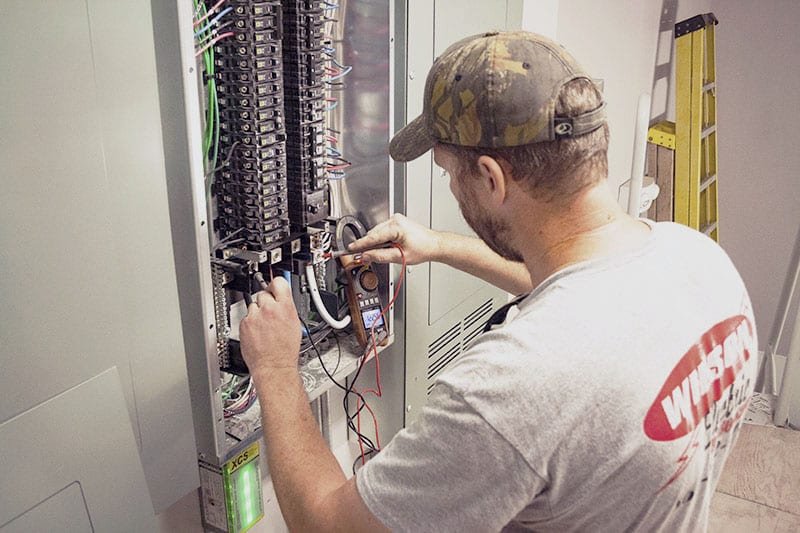
We realize that some of our readers might be considering work in the electrical trade. What does the process look like? Where does all your work lead you? All of these questions are legitimate, and worth considering when getting into a trade. Well, we can help! In this brief overview, we’re looking to highlight the difference between master and journeyman electricians. This should hopefully help you map out your next career move with a little bit more foresight.
So, where to begin? The local state government, rather than the national government, will license electricians. The state does, however, follow the National Electrical Code, which recognizes electricians by three broad categories: apprentices, journeymen, and masters.
The Difference Between Master and Journeyman Electricians Starts with Apprenticing
An apprentice is basically a trainee who works under the direct supervision of a Master Electrician. He or she will spend three to six years training in this role.
At the end of the apprenticeship, this new, “green” electrician needs to pass a journeyman test. The test basically covers foundational electrical knowledge and the National Electrical Code. It requires some time in the classroom. Apprentices need to study up the best ways to do the job right the first time!
Apprentice electricians can fulfill this requirement through a technical school. They can also work through a program affiliated with the Electrical Training Alliance.
Graduating to Journeyman Electrician Status
Apprentices who pass the requirements graduate to Journeyman status. A Journeyman can work on his own without direct supervision. He’ll still operate under the guidance of a Master Electrician, but he’s licensed to tackle wiring, outlet, and fixture installations by himself. He’ll do any service work and troubleshoot electrical problems that come up. Depending on the master electrician that the journeyman works under, he could focus on either residential or commercial and industrial installations.
A Journeyman, should he desire to continue his education, will typically work for another three to six years. During this time he gains experience and training along the way. He’ll continue to be educated in the fundamentals of electricity, but he’ll also pick up training for building codes, project management, and safety procedures and regulations.
Classes for Master certification are available at various vocational and technical schools. These classes are designed and run jointly by the National Electrical Contractors Association (NECA) and the International Brotherhood of Electrical Workers (IBEW).
Certified Master Electricians
After passing Master certification, electricians demonstrate competency in a variety of key areas. They can originate projects, pull permits for new construction and installation, and oversee apprentices and Journeymen.
A Master Electrician lays out and selects the type of wiring and connections according to electrical code. He can route circuits and choose the location of circuit breaker panels. A Master Electrician can operate his own company or work for a private contractor.
Continuing Education and Final Thoughts
The state requires both Master and Journeymen Electricians to take annual continuing education courses. This keeps them current with new codes and regulations in electrical fields. Like the courses taken for certification, electricians can take these classes either through trade schools or online.
As you can see, a lot of work goes into learning the electrical trade. Masters and Journeymen have to spend quite a bit of time learning it. After all, working with electricity poses a lot of inherent risks. Not just any dum-dum off the street should go rooting around with wires, power lines, outlets, and breakers.
To reach the tippy-top of the electrical food chain, a person can expect to invest between 6 and 12 years keeping themselves and others safe and powered up.
So, to answer the initial question, the basic difference between a master and journeyman electrician comes down to experience on the job, a whole lot of education, and state certification.
For more information about master and journeyman requirements by state, take a look at https://www.electricianschooledu.org/state-by-state-licensing-guide









